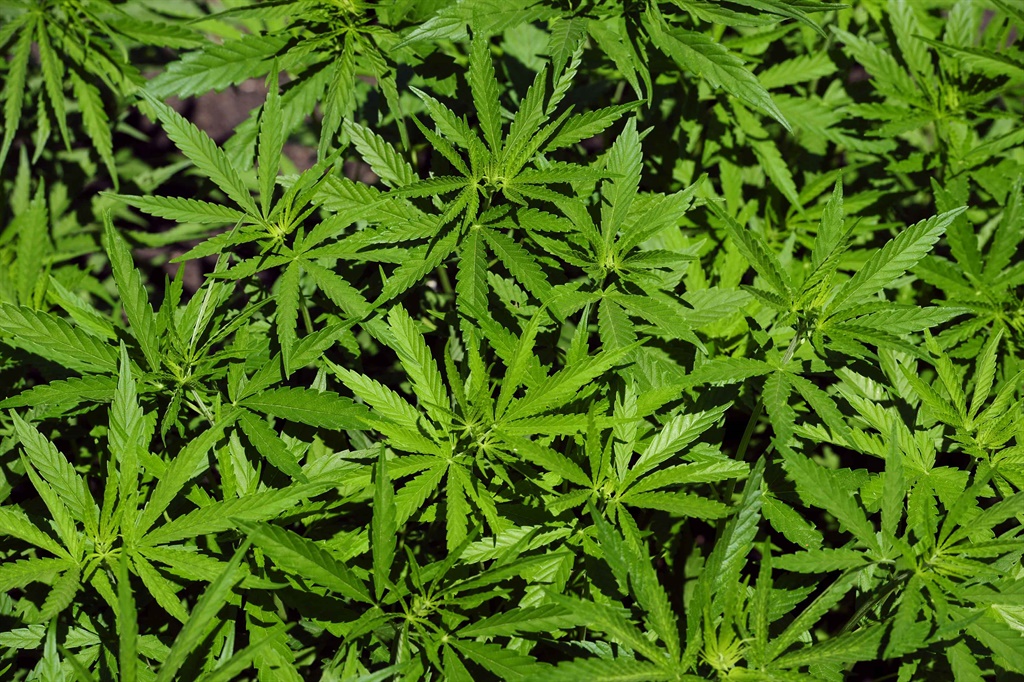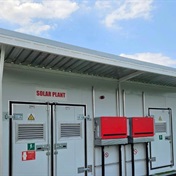
Loyiso Maqela* doesn’t see himself as a drug dealer or a criminal.
The 31-year-old dagga grower from a village near Mpande, south of Port St Johns on the Wild Coast, sees himself as more of a cross between a farmer and a herbalist.
Maqela, one of thousands of small-scale growers in his area, has never had a formal job, apart from working as a gillie for fishermen at nearby Mpande Beach since he was forced to leave school at the end of Grade 4. He reckons that joining the region’s multimillion-rand marijuana trade was his only option.
Maqela, a full-time dagga grower for the past two years, says the several hundred plants he has cultivated in two plantations are all that stand between him and his pregnant girlfriend (she told him the big news on New Year’s Day) and starvation.
“I grow ganja because it is the only way I can get the money to buy food for myself and my family. I don’t have a job. My parents moved to Mvelelo village in 2000, but I had to stay here. They are too poor to support me, so I had to find a way,” he says.
Maqela started selling dagga to tourists and fishermen for other growers while hustling at Mpande Beach and in Port St Johns, the hub of the Pondoland dagga industry and South Africa’s undisputed cannabis capital.
When one of the growers moved to East London, Maqela started growing the crop himself and already has a couple of successful harvests under his belt.
He and just about every other resident of his village, which City Press has agreed not to name, grow dagga alongside the maize outside their homes.
The 45-minute haul up the mountain on footpaths from where the road runs out to Maqela’s house, and the smallest of his plantations, takes us past carefully tended dagga patch after dagga patch. The taller maize plants are not only for the pot; they also provide cover from SA Police Service (SAPS) helicopters which, since 1996, have sprayed the area and plantations with chemical defoliants as far inland as Lusikisiki.
Others, bolder, have ganja hedges surrounding their gardens. The plants are two and a half months away from harvesting; some are waist high and starting to develop the fruit – known as heads – that provide the intoxicating high sought by those who smoke it.
Stats SA’s unemployment figures for the whole of the Eastern Cape stand at 29%, but the situation in Pondoland’s villages and towns is far worse. Some 66% of Lusikisiki’s adults are unemployed, according to its Ingquza Hill Local Municipality.
Port St Johns is slightly better off, at 50.3%. At Mpande, which falls under the OR Tambo District Municipality, the figures – a staggering 77% unemployed – reveal why so many are involved in the dagga trade for survival.
Maqela’s village is no exception. The rutted and potholed road looks as if it has never been surfaced. The thoroughfare runs out and morphs into a path up the hillside, winding past a series of homesteads made up of mud and grass rondavels. There’s no running water. No electricity. No flushing toilets. Very few livestock. The nearest spaza shop with a fridge is down the hillside in the direction we came from.
A long, skinny beanpole of a man, Maqela looks almost like a cartoon stoner in his shorts, knee-length socks and flip-flops. In the blazing heat, he is wearing a black, long-sleeved T-shirt under a long-sleeved camouflaged shirt, emblazoned with Rastafarian emblems. His undernourished dreadlocks are topped with a red, gold and green woollen hat. A pair of black wraparound shades finishes his look.
Maqela, introduced by a stoner friend from Port St Johns, may have hammed it up for the camera ahead of our meeting. He is unwilling to talk without compensation. He is broke, has no stock left and is waiting for his crops to mature. He plays along in the hope of either some cash, commission from a sale on behalf of somebody else who has stock left to see them through the year-end dry season, or lunch.
A healthy knee-high dagga bush grows out of a crack in the red earth compacted around his front doorstep. He crushes all hope of a picture of him waist-deep in his weed. The man is deeply paranoid: dagga farming is illegal and can land him in jail for a long time, let alone cause the loss of his livelihood.
“I can talk to you, but no pictures,” he says. “Somebody came here and took pictures and put them on Facebook because he wanted the cops to lock me up. People know me. People are jealous. There’s another boy who is a grower here. His ganja is kicking. His father’s father called the cops to burn his plants because he was jealous. The old man grows ganja. I can’t take a chance.”
Maqela has two strains in the ground that will be harvested between March and April. The local impondo, often incorrectly referred to as Durban poison, takes four months to mature and provides a lower price per kilogram than the skunk, grown from imported seed sourced via “a guy in Cape Town”, which has a seed-to-spliff cycle that’s a month shorter; it is also far more potent.
The impondo gets him about R2 000 per kilogram from an Mthatha merchant. The skunk earns him twice that and is way more popular with retailers from East London, who buy most of his harvest.
“I like to supply one or two people. It’s better than selling one, one, but I also do that,” he adds.
“That’s more dangerous, but selling to the tourists like that is right. They pay a lot of money for small ganja. Even the guys in East London pay big money for one gram. Even R100. But it is dangerous.”
Maqela has never been arrested.
“A lot of people know me, but they don’t know I am growing. No police have ever found me. I am scared of going to jail.”
Maqela’s area was spared last February when the SAPS Air Wing conducted spraying operations.
“They never spray here. We were lucky. They sprayed the people over there,” he says, pointing to the village across the valley.
Maqela has the seed of a third strain, known as cheese, that he will plant after his April harvest.
“The cheese will be kicking,” he says. “It’s the very good strain. Strong. They also call it high grade. It grows nicely here. It doesn’t need too much rain. The soil is right. It can be ready in less than three months.”
Maqela tends his plants daily with home-made compost. He feeds them molasses mixed with water, which makes the heads denser and improves the drug’s strength.
He watches for worms – and goats.
Cattle are no problem because they do not eat ganja.
He does not know if the herb makes the goats high, but says they are capable of destroying a plantation in hours.
“This is work. If you look after your fields, you will grow kicking ganja,” he says. “If you leave them, you grow s**t.”
If Maqela, who smokes dagga once a day before bedtime, is making big money, it is hidden in a hole in the ground. His two-roomed house is built from wattle and daub. Only the bedroom is furnished. His nameless dog is as undernourished as his dreads.
Maqela says he would willingly pay tax to the state if the industry were legalised.
The custodians of legislation to decriminalise marijuana for medicinal use hope the new law will be enacted by the end of the year.
But it will be longer still before medicinal marijuana becomes legal, because the law will prescribe that a series of research centres be set up before any kind of production or dispensing can take place.
The Medical Innovation Bill, which will in effect amend existing legislation classifying dagga an illegal drug – to allow it to be prescribed for medicinal purposes – is now with Parliament’s health portfolio committee. It was tabled in 2014 by IFP MP Mario Oriani-Ambrosini, who used marijuana for pain relief in his battle with cancer.
Narend Singh, the IFP MP who piloted the bill after Oriani-Ambrosini’s death, said he was “hopeful” it would become law within the course of this year.
The committee will soon take a vote of desirability on the bill as the next step towards piloting it through the legislature. After that, there will be hearings with specialist health agencies, and time for public comment.
Singh said he has had “sensitive” talks with the ANC about the bill.
“Discussions are at a sensitive level, but I believe they are going well. It has been a task to get people beyond the stoner image of cannabis and to understand that it contains other agents that are of very great medicinal value,” he said.
“But for the moment, people need to remember that any person caught in possession of cannabis will be arrested,” he said
“I am a farmer. This is not a drug; this is a herb,” he says. “If I can go and pay for a licence, I will be very happy to pay. If the government wants me to pay tax, I can pay. No problem.”
Eastern Cape agriculture MEC Mlibo Qoboshiyane says he welcomes the move to legalise medicinal marijuana through the so-called Ambrosini bill, which is currently before Parliament.
“Marijuana has been known to have a lot of medicinal properties. Any research that seeks to create an awareness of its medicinal value, control and preventative measures to stop illegal use stands supported,” he says.
“The challenge South Africa has been faced with is the longtime existence of an illegal marijuana trade, which by now may have an established system of illicit practices that will be difficult to tame.
“We need to unmask fear and reorient society to understand the plant positively. It must never be the opening of a floodgate for abuse.”
*Not his real name
TALK TO US
Should the dagga industry be decriminalised?
SMS us on 35697 using the keyword DAGGA and tell us what you think. Please include your name. SMSes cost R1.50




 Publications
Publications
 Partners
Partners








